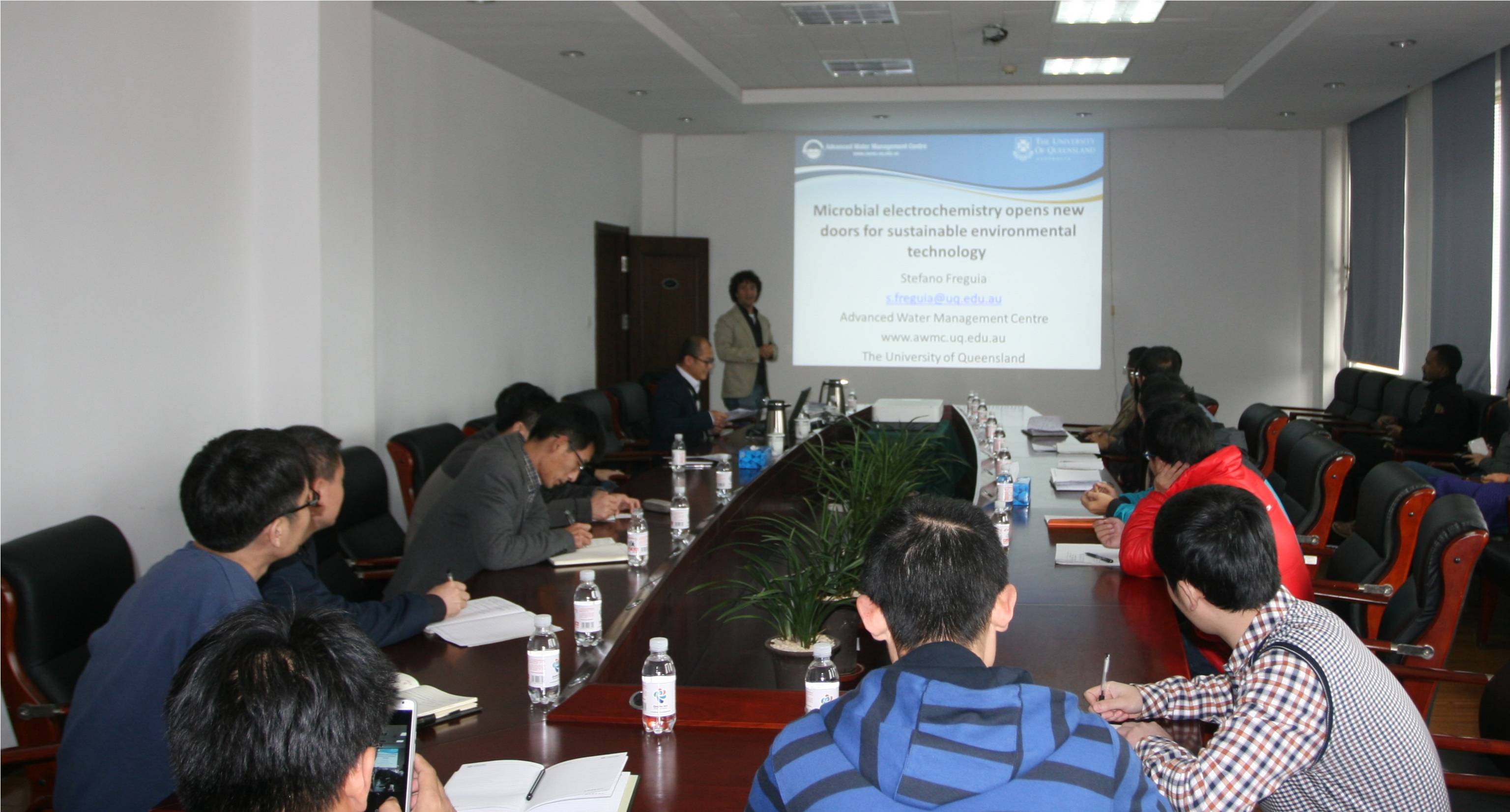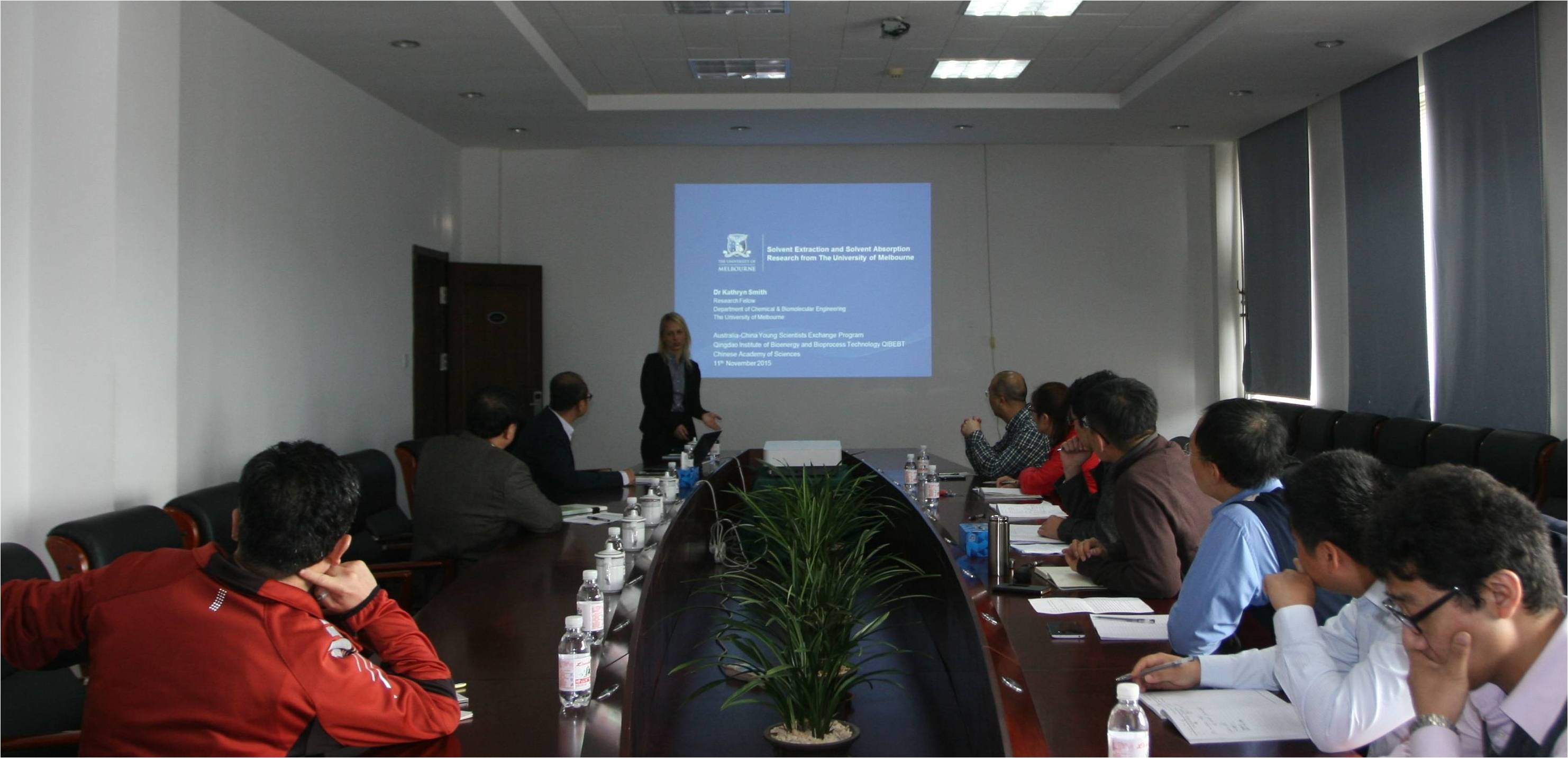Australia Young Scientists Visit QIBEBT
Stefano FREGUIA, a Senior Research Fellow in the field of microbial electrochemistry was invited to the Chinese Academy of Sciences' Qingdao Institute of Bioenergy and Bioprocess Technology (QIBEBT), where he spoke about “Microbial Electrochemistry Opens New Doors for Sustainable Environmental Technology” on Nov 9. Dr. Kathryn SMITH, a Research Fellow in the field of solvent extraction, was also invited to QIBEBT, where she spoke about “Solvent Extraction and Solvent Absorption Research from The University of Melbourne in Australia” on Nov 11.
Dr. FREGUIA, from the Advanced Water Management Centre at The University of Queensland, had developed and implemented a novel microbial electrochemical technology for nutrient recovery from source-separated human urine, and developed novel bioelectrochemical sensors for detection of cyanobacteria blooms and novel electrode materials for microbial electrochemical applications. Dr. SMITH, from the Department of Chemical & Biomolecular Engineering at The University of Melbourne in Australia, had rich experience in laboratory based research and in the operation of industry based pilot plants for hydrometallurgical and pharmaceutical applications with solvent extraction and CO2 capture with solvent absorption.
The lectures were hosted by Dr. XIN Hongchuan, deputy director of Science and Technology Department of QIBEBT. Dr. FREGUIA overviewed the latest achievements at the Advanced Water Management Centre in the field of microbial electrochemical technology. Dr. SMITH discussed some research completed by the Separations Group at The University of Melbourne in the fields of solvent extraction for pharmaceutical and hydrometallurgical applications and solvent absorption for CO2 capture applications. The two young scientists shared their experiences with researchers from the Waste Valorization and Water Reuse Group, the Biosensing Group, Industrial Biogas Production and Utilization Engineering Group, Marine Biology & Carbon Sink Group, and the Pilot Workshop at QIBEBT. The visits are expected to facilitate potential collaboration between Australian universities and QIBEBT.
The visits of the two scientists were within the China-Australia Young Scientist Exchange Program, sponsored by the Ministry of Science and Technology (MOST) of China and the Australian Department of Industry and organized by China Science & Technology Exchange Center.
 |
 |